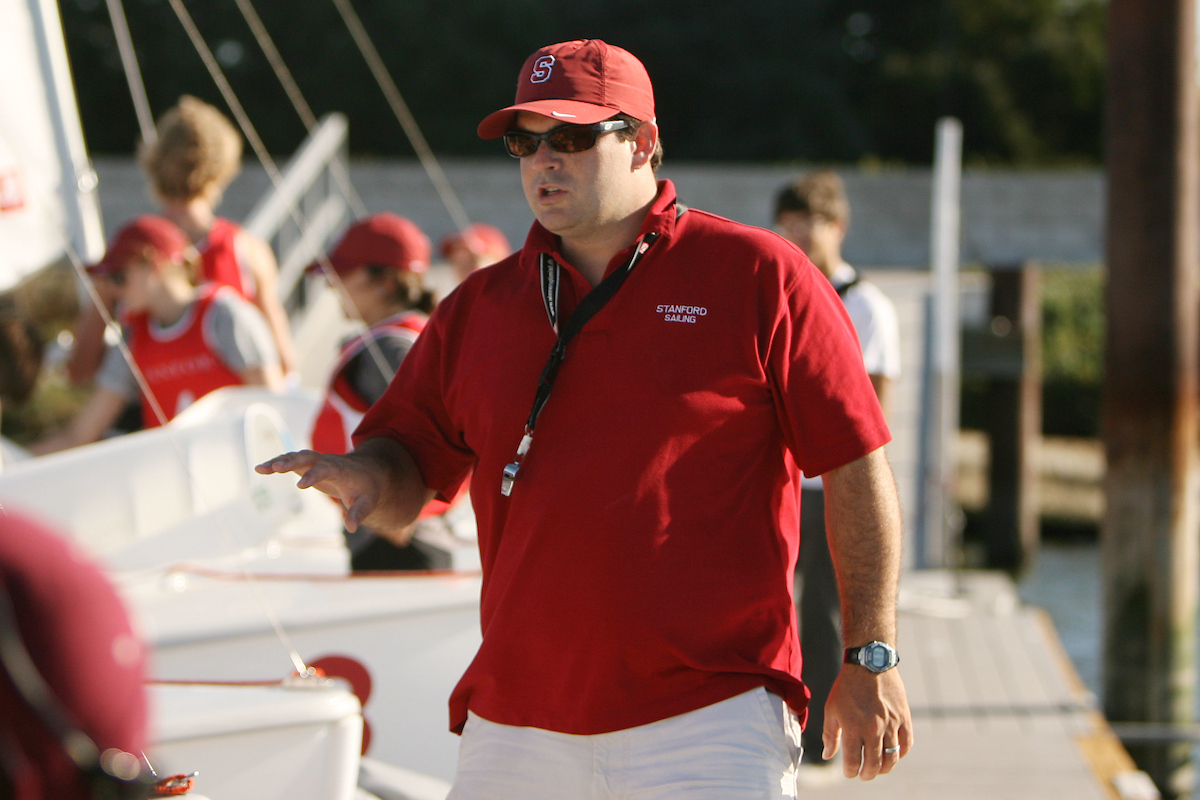After accepting $610,000 in bribes to reserve athletic recruitment spots for wealthy families’ children, former Stanford sailing coach John Vandemoer was sentenced on Wednesday to one day in prison, six months of home confinement with electronic monitoring and a $10,000 fine. He is the first individual to be sentenced in the national college admissions scandal.
Vandemoer was fired on March 12, the day he pleaded guilty to conspiracy to commit racketeering. Similar crimes typically warrant a 33 to 41 month sentence; prosecutors recommended 13 months because Vandemoer redirected the money toward Stanford’s sailing program rather than benefit personally from the bribes he accepted. Stanford is the only school implicated in the scandal in which all fraudulent money went to university programs.
Vandemoer said at his March plea hearing that he knew when he agreed to participate in the scandal that his actions were wrong, and he expressed regret at his Wednesday sentencing.
“Mistakes are never felt by just yourself; this mistake impacted the people I love and admire most,” Vandemoer wrote in a statement sent to The Daily and other news organizations. “The hurt I have caused is devastating to me.”
U.S. District Judge Rya Zobel granted him a sentence far lighter than what prosecutors had requested, saying that he was “probably the least culpable” of the nine coaches involved in the scandal because he had not pocketed any of the money. Vandemoer has already served his one day in prison.
Calling sailing an “underfunded team,” Vandemoer told the Wall Street Journal he felt pressure to raise money for sailing advancements such as new boats, which typically cost between $8,000 and $10,000. He saw the money he brought in as donations, rather than bribes.
In cooperation with scandal ringleader William “Rick” Singer, Vandemoer accepted money in attempt to assist three students. Two of these students never enrolled at Stanford; the third was accepted and enrolled, but not as an athletic recruit. She has since been expelled from the University.
Prosecutors held that Vandemoer benefitted from the bribery by advancing his career, stating in their pre-hearing memo that “his actions not only deceived and defrauded the university that employed him, but also validated a national cynicism over college admissions by helping wealthy and unscrupulous applicants enjoy an unjust advantage.”
In court, Vandemoer took full responsibility for his actions.
“A big part of my coaching philosophy has always been that it’s not the mistake that defines you, rather it is what you do afterwards,” Vandemoer wrote in a statement. “I’m holding true to those words now in the face of my biggest mistake. I have taken responsibility for my actions and I’m accepting the consequences of those actions.”
Vandemoer apologized for bringing Stanford under a “cloud” through his participation in the scandal. He also apologized to the alumni and current members of the sailing team, saying he is “devastated that the program and the sport would be looked at poorly because of [his] actions.”
Finally, Vandemoer apologized to his friends and family, writing that the eventual conversation he will have to have with his two young kids will be “the hardest conversation of his life.”
“In the last three months I have been fired, put my family’s financial security in jeopardy, and caused us to lose our housing,” he said in court. “My career that I have worked passionately for 20 years is gone, and my freedom is in jeopardy, endangering my ability to be there for my kids. I deserve all of this – I caused it – and for that I’m deeply ashamed.”
Vandemoer led Stanford’s sailing program for 11 years. Following his guilty plea and loss of Stanford housing, Vandemoer and his family moved to a friend’s beach house. The former sailing coach enrolled in online project management classes at Cornell University in anticipation of a new career, according to the Wall Street Journal.
This article has been updated to reflect that Vandemoer was fined $10,000 in addition to his prison and home confinement sentence.
Contact Julia Ingram at jmingram ‘at’ stanford.edu.
